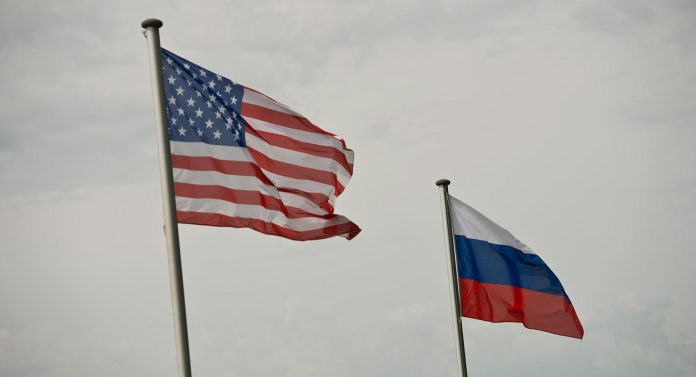US-Russian relations, which began in 1991 with high hopes and enthusiasm for the future prosperity of both sides, are now on the brink.
American policy toward Russia since the end of the Cold War has assumed too great an opportunity for a radical transformation of Russian politics, economy, and society.
Thomas Graham writes in Getting Russia Right that US policy consisted of the following points: first, continuing arms control to reduce both countries’ Cold War nuclear arsenals; second, combating Russian influence in other post-Soviet states; and third, promoting the expansion of a democratic and market-oriented Europe through increased membership in major institutions, including NATO and the EU.
However, in the case of a newly independent Russia, the response was immediate in the form of massive inflation and economic collapse. Unsurprisingly, this catalysed significant opposition to further economic reforms in the Russian parliament and society. In addition, the resulting power asymmetry was only the surface of the problem in U.S.-Russian relations. For seventy-four years, Soviet leaders had made decisions about huge economic allocations and investments on a command-and-control basis. As a result of the instability, all post-Soviet leaders found themselves in a very tough and volatile global market environment.
Clinton’s support for Yeltsin at a time when there was strong political opposition to reform did enormous damage to the credibility of American support for democracy for decades to come. Then, on 21 September 1993, President Yeltsin dissolved parliament and two weeks later used military force against opposition deputies who had taken refuge in the White House, as the parliament building was then called. Although these deputies had been elected in 1990, when the USSR still existed, this election was one of the few truly democratic elections.
At the very beginning, the chances of a quick and smooth transition of Russia to a market democracy were very high. The magnitude of the failure of these two short episodes in 1917 and in the early 1990s only encouraged Russian citizens to become even more sceptical of democracy and inclined towards centralised autocracy. However, Russia was extremely weak at that point, having just survived the collapse of the state, having lost about 40% of its territory and 50% of its population, including the exodus of some 25 million ethnic Russians to neighbouring, newly independent post-Soviet states. At the same time, doubts about NATO were growing.
But the almost immediate outbreak of the Yugoslav wars confirmed that NATO would not only remain the leading Western security institution, but would also, to Russia’s dismay, expand its sphere of activity.
In addition, the former Warsaw Pact countries would, as before, seek NATO membership as soon as possible. And given their long experience of opposing Russian and Soviet power, it is only natural that Czechoslovakia, Hungary, Poland and others would seek to join the West as soon as possible.
First, the United States would have had to consider itself a normal great power. That would mean turning its back on the last 100 years, during which it has positioned itself as a great power like no other, one that does not simply advance its own parochial national interests but works for the benefit of the world as a whole. Second, the United States would have had to put to the side its dueling images of Russia to acknowledge the possibility of a third variant, which in fact would be Russia as the normal great power its leaders consider it to be, according to pp. 167-8.
Further, after the collapse of the Soviet Union, Washington became “dizzy with success” during the unipolar moment fuelled by the high-tech economy of the 1990s. As a consequence, America abandoned the restraint and compromise characteristic of the behaviour of “normal great powers” and embarked on messianic crusades, intervening around the world. Russia could not then resist. However, as its economy began to recover, Russia, led by Vladimir Putin, played an important and constructive role in helping Washington push the Taliban out of Afghanistan in 2001.
Graham says the Bush administration missed the best opportunity for a stronger U.S.-Russian strategic partnership. Then came the Iraq war, and Russia was once again seen largely as a liability.
From the beginning of the Ukrainian-Russian conflict to the present, there is no desire or ability on either side to defeat the other on conditions that Kyiv or Moscow would consider a victory. Negotiations will have to take place, in which each side will have to make concessions, and the sooner the better, so that this senseless destruction will stop before something really terrible and destructive happens.
